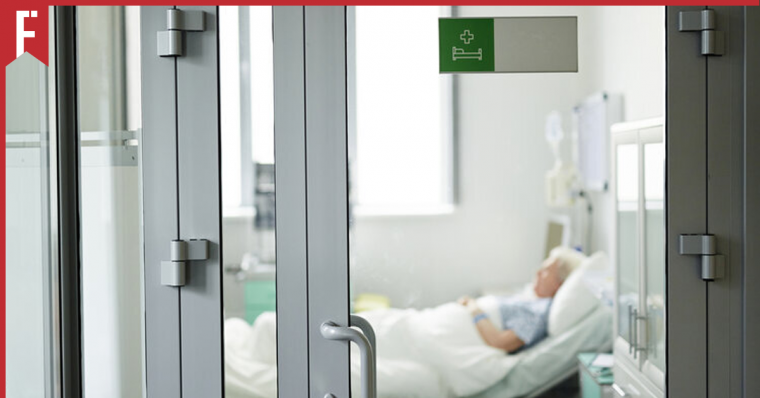
This article was submitted anonymously
Disclaimer: This article discusses issues of elderly neglect and death. Reader discretion is advised.
“I’m sorry, there’s nothing else we can do.”
That sentence feels haunting to me. I feel like it has buried itself in my head and it’s not going to go away anytime soon. It also seems surreal because you only ever hear that line in movies. And then some miracle happens and the character pulls through, making an outstanding recovery. But it sucks that reality slaps you in the face and says ever so mockingly “you wish that was you, huh?”
I do. I do wish that was me. Even though at the very back of my deeply in-denial mind, I knew that things were only going to get worse. But I still hoped. Hoping that sending her to the hospital would make her better. After all, that’s why they were built, weren’t they? To heal people and make them better?
It’s Upsetting, But There’s Nothing We Can Do About It
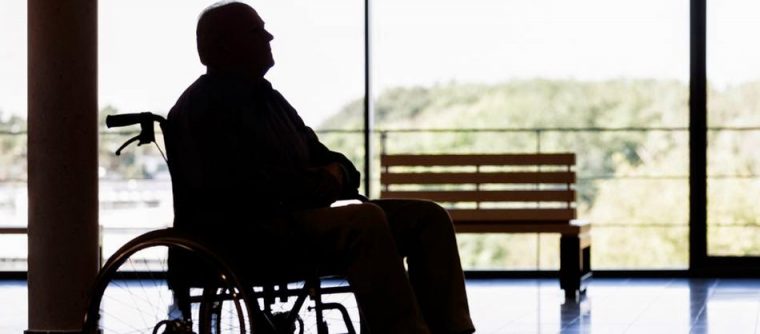
You see, my grandmother was a healthy woman. On the outside at least. To say that she didn’t have any health issues would be a lie. She was 92 years old and had a book full of health issues, but she handled them like a champ — never really complained unless it got unbearable, which in hindsight isn’t really good at all.
She always hides her pain until the last second. So when she got sick, really sick, and was sent to the hospital, I didn’t know how to react at first. I thought she was going to be okay. After all, it’s not like she’s never been to the hospital before.
My grandmother had only just recently recovered from COVID-19 a few days before being admitted to the hospital. While she had it, her symptoms were minor. But we did monitor her oxygen levels and temperature the entire time. Her condition had only turned for the worse after she had “recovered”. Her lungs weren’t really taking in enough oxygen and we had to call the ambulance.
But when she was at the hospital, the doctors told us that we couldn’t even visit her because of COVID-19 protocols and because she had lingering COVID-19 symptoms. Which we understand to a certain extent. The hospital did not allow visitors for fear that their high-risk patients might contract the disease. Or maybe they were scared that their patients might contract other diseases that visitors bring in and would eventually lead to the patients having infections or whatnot.
So, my grandmother had to be there by herself. A 92-year-old lady, who’s always been surrounded by family wherever she goes, had to stay in the hospital by herself for almost two weeks. Alone.
They wouldn’t even allow her a caregiver. They had told us, reassured us even, that my grandmother would be very well taken care of. But when she got back from the hospital 12 days later, she looked sunken, unkempt and had bedsores all over her back.
Maybe It’s Just How It Is There?
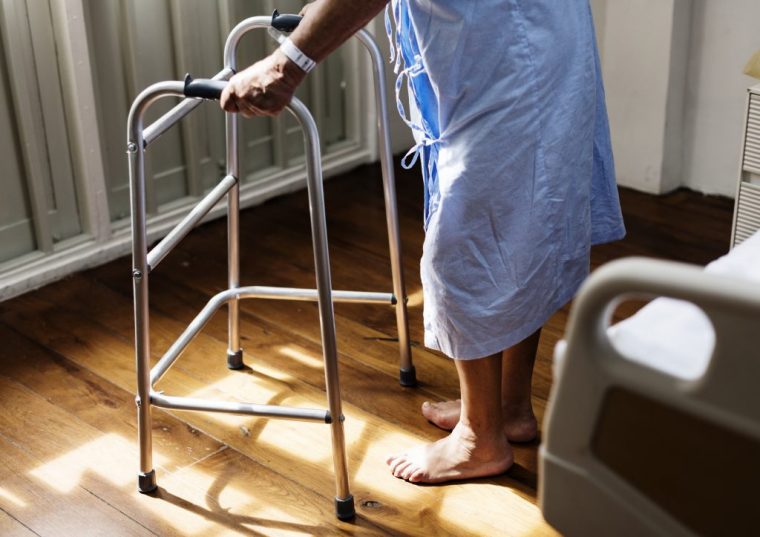
The first few nights when she got home, we would often hear her calling “Encik, encik!” in the middle of the night and every time that happened, we had to reassure her that she was already at home and could call on any of us whenever she wanted. She didn’t say much after that. Just kept to herself and only spoke when her bedsores got too much to handle.
When I brought it up with certain people, there were arguments of “oh, you think they have enough manpower and staff to handle all these patients?” I understand that but I also would argue that if that’s the case, then why won’t they allow a caretaker to enter and do that instead?
Our family’s been taking care of grandmother for years. Catering to her every need, everywhere she goes. If you argue that you don’t have the time to move her every few hours, won’t having someone there to help make that easier for you? I understand that the rules of the hospital are that when there are COVID-19 patients involved that there will be no visitors, but with this kind of outcome, it doesn’t reassure anyone at all that their family member would come out of the hospital feeling better.
Why not just ask the caretaker to take a COVID-19 test and then stay in the room with the patient? Wouldn’t that make your job easier as a nurse? Please someone help me understand this. Because these small things are the ones that frustrate me. Isn’t that the whole point of going to the hospital? To get better? My grandmother could have come back better but she came back worse.
They didn’t take care of her like they promised they would. They only interacted with her when they had to take blood samples and check her vitals. Which, yeah, that’s their job. And you can argue that they don’t have to talk to her or go out of their way to make her feel better or more comfortable but they could, couldn’t they? What’s the harm in having a little chat with a sick old woman?
Maybe years of being doctors and nurses and seeing pain and death almost every day have desensitised them from feeling normal emotions? Or do they have to put professionalism above other emotions they have — even compassion?
Is Ageism In Hospitals a Thing?
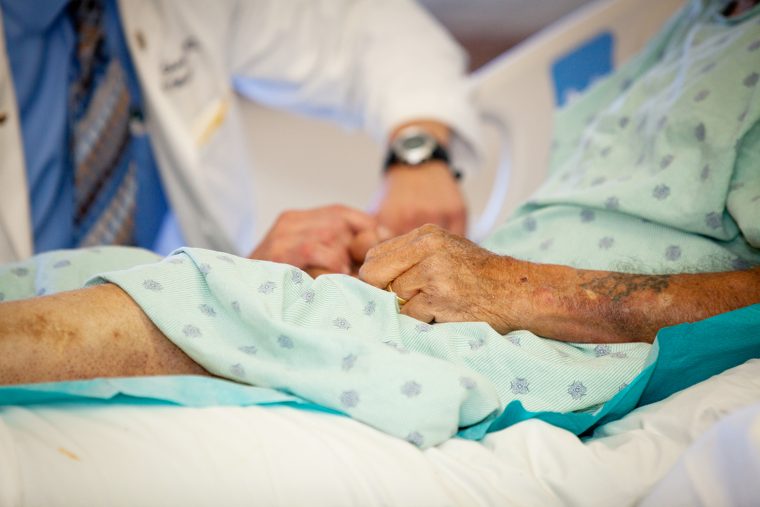
To tell you the truth, I’ve only ever heard of neglect or ageism in hospitals from my friends overseas. I’ve never heard of people in Malaysia ever talking about how badly the hospitals have treated the elderly. Or how nonchalantly they choose to treat them.
That was until I talked to a few friends about it. I had put forward my grandmother’s condition and asked them if I was being overly emotional about the whole thing. But to my surprise, a few of them had quite some choice words to say about the matter. They shared with me their own experiences with how hospitals have treated their elderly family members.
In one incident, a friend of mine’s 85-year-old grandfather had to be left outside in the hallway of a hospital because they couldn’t find a place for him in any of the wards. His family had not been informed of it until they visited him and asked for his room number, only to be directed to a hallway.
There was another friend of mine who expressed her frustration about how her uncle was treated. He was 70 years old, bedridden and couldn’t move his body. When lunchtime came, he pressed the call button to ask for help, but no one came. Even after pressing the button multiple times, there was still no response. When the nurse finally came in, he asked them if they could kindly feed him since he couldn’t do so himself, they told him that they didn’t have time to. (Which brings me back to the question: why can’t they allow a caretaker to come in and do those things if they don’t have the time?)
The stories went on for a while, with many friends expressing their anger and frustration over how hospitals treat the elderly. I’m not going to lie, it did make me feel better and worse at the same time to have so many people with similar experiences.
And I feel like it’s going to take a very long time before I accept any “maybe they were just…” excuses from hospital apologists. But although my anger towards hospitals is still present, I’m also grateful that they let my grandmother come home, where she passed away a few days later, in the reachable arms of those who love her dearly, even to this day and in more years to come.
What Do You Mean There’s Nothing Else You Can Do?
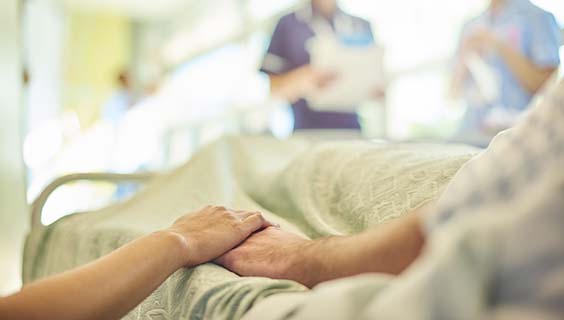
In the end, after so many reassurances and “we have to run more tests to be certain”s, there was really nothing that the doctors could do about her condition. They told us she was “deteriorating”. A word they used a lot in our conversations.
I think what I took away from this whole experience was that hospitals don’t have enough research or amenities or energy to cater to older people. They always tell you that they need to run more tests, do more check ups, but at some point, it becomes too painful to let them go on.
And they tell us that the only thing left to do was to take our elderly home and prepare them for homecare. At some point, I think my grandmother knew that her time was coming. She was always so quiet and wouldn’t opt to speak unless she absolutely had to. I miss her a lot and writing this was difficult. It brought up a lot of anger and unanswered questions.
It also made me think to myself that I would never want to live that long.
I know it sounds bad and borderline suicidal but why would I subject myself to that kind of pain? I just hope that in the future, whether you’re a nurse or a doctor, please give attention to your elderly patients as well. They matter too. It really made me think that hospitals are just somewhere the elderly go to die. It makes me, a regular person, scared of hospitals and the neglect that they’ll give me once I reach the age of senior citizenship.
It sounds bad, I know. I hear it when I type it out, but with how hospitals are, I hope I don’t live that long. It also kind of makes me scared to think of if I were to leave my parents unattended at the hospital when they’ve reached their twilight years.
I would hate to think that they’d be suffering the entire time there and I couldn’t do anything about it to ease their pain. And the doctors and nurses offer no compassion. Just professionalism.
The Dark Truth
I’m not going to go with the neutral route by saying, “that’s not to say all hospitals are like that.” Just let me be angry and selfish this once by saying that they are. Please just look at it from my perspective. I lost a very dear love of my life, one of the women who raised me since I was a baby. Of course, I’m not 100% blaming the hospitals, but I am blaming them indefinitely. No matter what people say to try to convince me. Because the whole point of bringing my grandmother to the hospital is so that she could get better, not worse.
It’s funny but I never once thought about my grandmother dying. It’s not something that I imagined, even for a second. To me (and I know it’s going to sound ridiculous), she’s like someone immortal. Yeah, I know exactly how that sounds. But you don’t understand. She was always there for me. Always.
Since the moment my mother gave birth to me, my grandmother had always been a presence in my life. So when my brother came into my room, eyes red-rimmed and sobbing, it felt like a slow descent into a nightmare. One that you know you’re in but couldn’t really wake up from. Pain. Abrupt and brutal. And nothing made sense afterward.
So, forgive me if I hold a burning anger for hospitals after how they’ve treated my grandmother. It’s sad to think that there’s nothing left to do now except to move forward and hope that in the future, no other elderly individual would suffer the same fate as she did.








